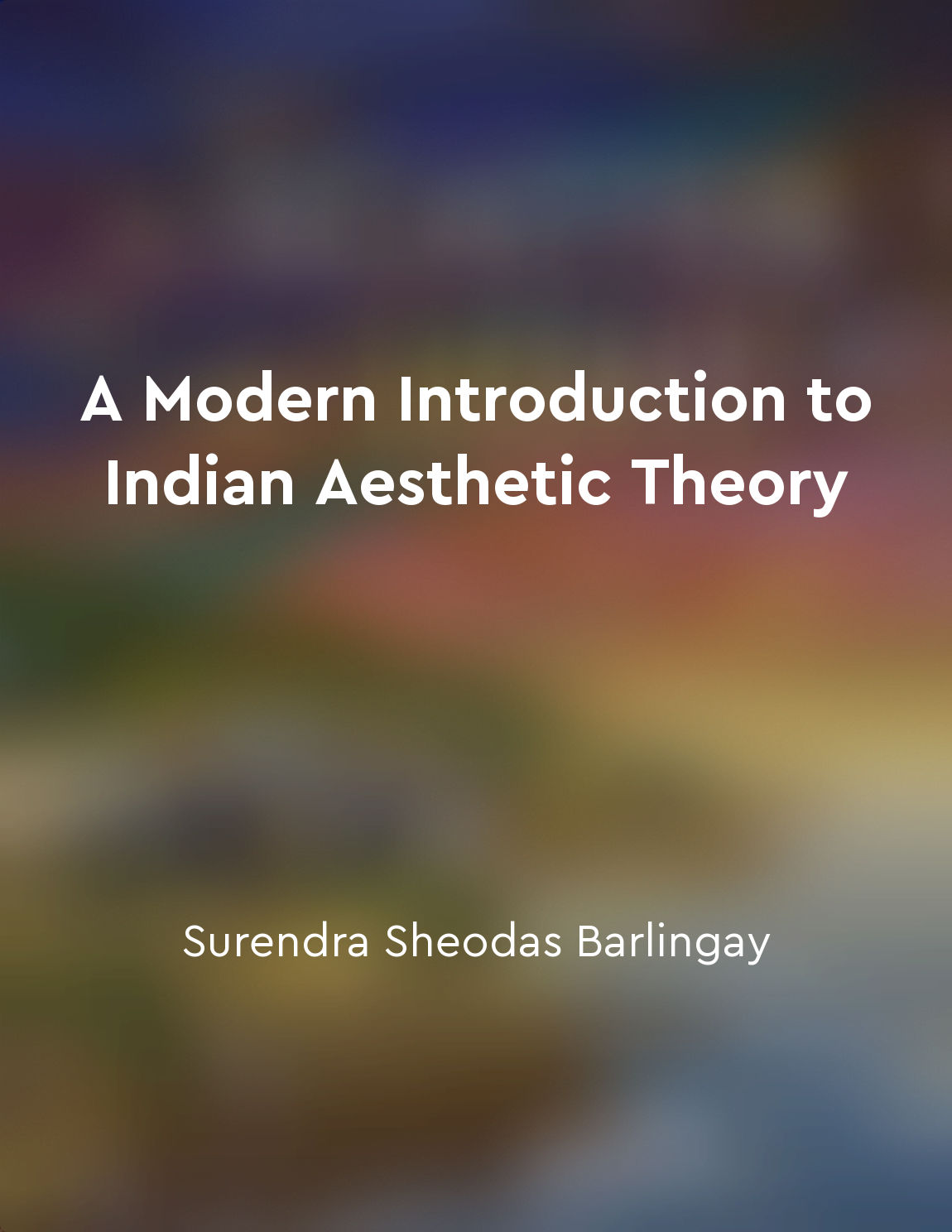The role of the audience in experiencing Rasa from "summary" of A Modern Introduction to Indian Aesthetic Theory by Surendra Sheodas Barlingay
The concept of the role of the audience in experiencing Rasa is a fundamental aspect of Indian Aesthetic Theory. Rasa, as an aesthetic emotion or flavor, is evoked through various artistic forms such as literature, music, dance, and drama. However, the experience of Rasa is not solely dependent on the artist's creation but also on the audience's perception and interpretation. The audience plays a crucial role in experiencing Rasa as they are actively engaged in the process of emotional transference. It is through their receptivity and emotional resonance that Rasa is brought to life. The audience brings their own emotions, memories, and experiences to the artistic performance, which influences how they perceive and connect with the Rasa being portrayed. In the context of Indian Aesthetic Theory, the audience is viewed as an integral part of the artistic experience. They are not passive spectators but active participants who contribute to the overall aesthetic enjoyment. The audience's ability to empathize with the characters, themes, and emotions presented in the artistic performance is essential for the full realization of Rasa. Furthermore, the audience's role in experiencing Rasa is dynamic and multifaceted. They are not only receivers of the aesthetic experience but also co-creators who bring their own unique perspectives and sensibilities to the performance. This interaction between the artist and the audience creates a symbiotic relationship that enhances the richness and depth of the aesthetic experience.- The role of the audience in experiencing Rasa highlights the interconnectedness between the artist, the artwork, and the audience. It underscores the notion that aesthetic pleasure is a collaborative endeavor that relies on the active engagement and participation of both the creator and the receiver. By acknowledging the importance of the audience in experiencing Rasa, Indian Aesthetic Theory emphasizes the transformative power of art and the profound impact it can have on individuals and society as a whole.


